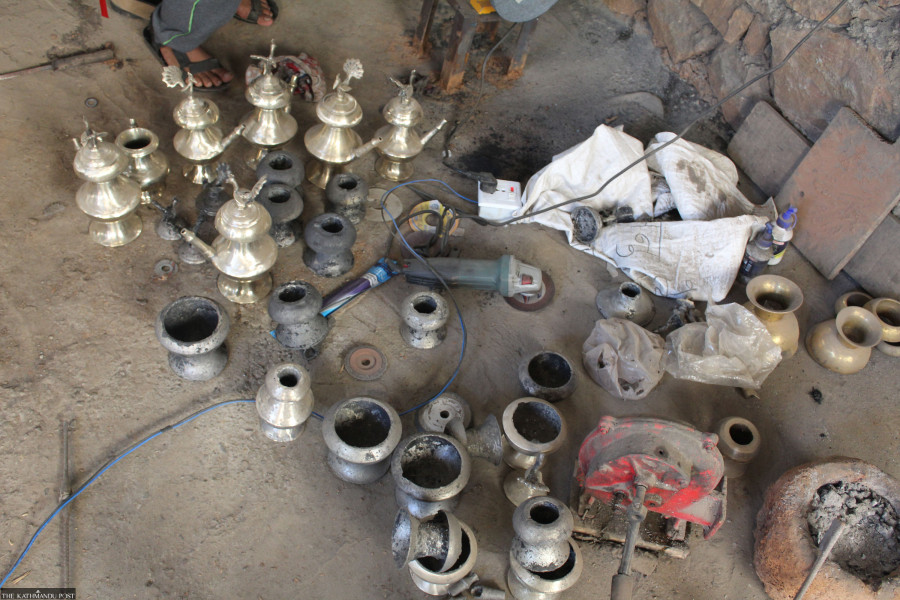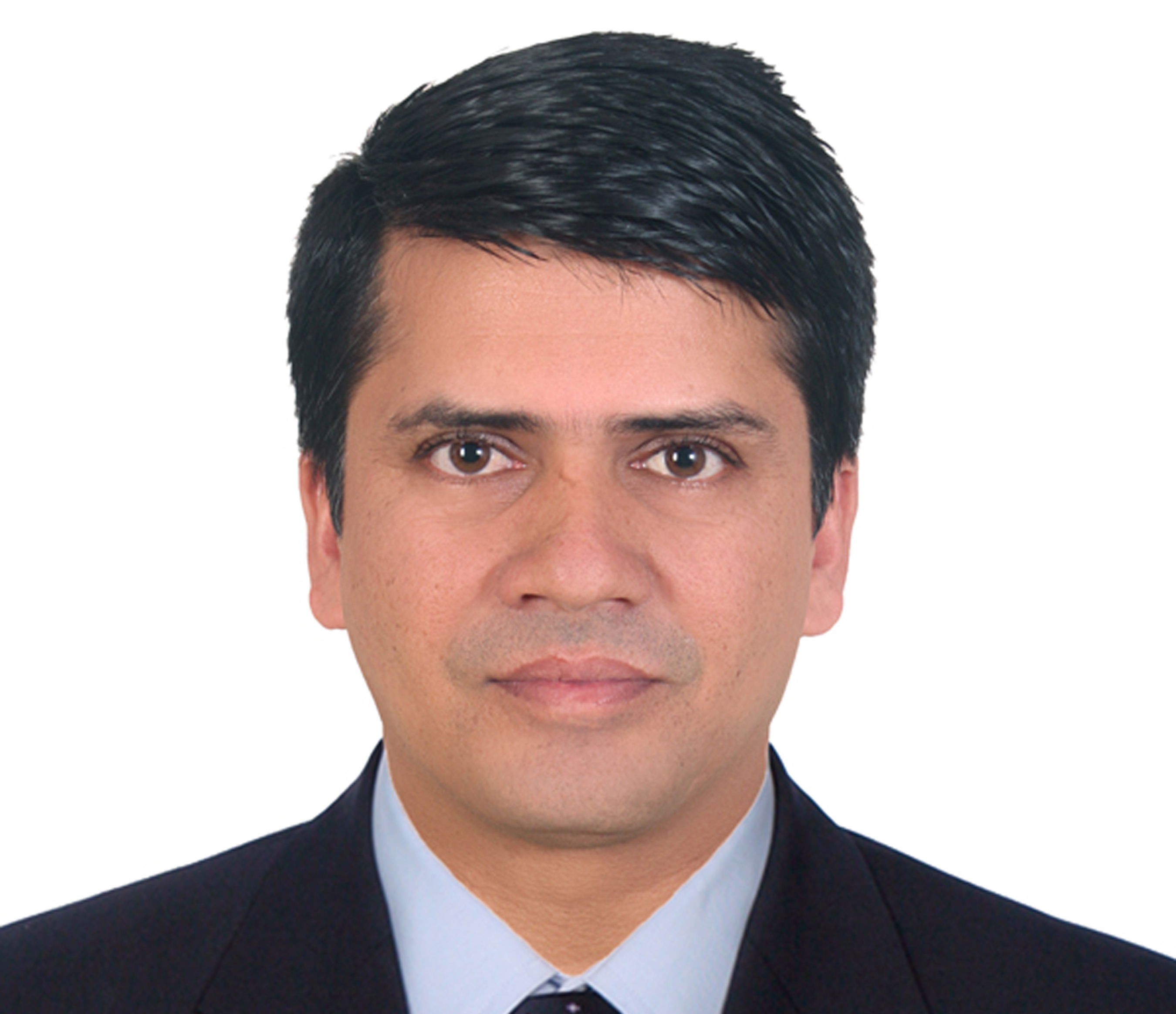Money
Palpa's iconic karuwas becoming a memory
Locals cite competition from cheaper machine-made products for the declining number of traditional workshops.
Madhav Aryal
Like every tourist visiting Palpa, Priya Adhikari had wanted to see how its iconic product—the handmade bronze water jar known as Palpali karuwa—was made.
The Chitwan resident had heard so much about the karuwa that she planned to take a tour to a workshop and see the artisans at their craft.
Adhikari was sorely disappointed to find out that most of the workshops had shut down. She had to be satisfied with taking a picture in front of the 14-foot karuwa that had been installed at Tundikhel in Tansen as a symbol of Palpa.
“It’s on the wish list of every visitor to buy and see the process of making karuwas when you visit Palpa,” said Adhikari, 35. “However, the only Palpali karuwa that I got to see was the one kept for public display.”
According to the Palpa Chamber of Commerce and Industry, the karuwa established at Tundikhel is the largest in the world and weighs 400 kg.
The iconic sculpture was made by Dinesh Bajracharya.
Visitors to Palpa can see plenty of karuwas displayed at gift shops, but most of them are machine-made.
Bharat Acharya, an official of Tansen Municipality, said visitors are eager to see the manufacturing process, but only a few workshops are still in operation.
The history of Palpali karuwa dates back to the Rana regime.
The Rana governor brought Newar artisans from Kathmandu to Palpa to set up a mint. Palpa was the administrative centre for western Nepal in those days.
The Newar families settled down in a part of Tansen and minted coins. The neighbourhood subsequently came to be known as Taksar Tol which means the mint quarter. Later, the artisans began making karuwas too.
“There were 18 families making karuwas in Taksar Tol alone,” said local resident Dil Bahadur Shakya.
Members of the Bajracharya families were primarily engaged in making Palpali karuwas.
“These days, they neither mint coins nor make karuwas at Taksar Tol. The new generation isn't interested in carrying on the family business,” said Shakya.
Locals cite the scarcity of raw materials and skilled artisans and increasing competition from cheaper machine-made karuwas for the declining number of traditional karuwa workshops in Palpa.
During its heyday, each workshop in Taksar Tol produced more than 5,000 karuwas annually.
“A majority of karuwa makers have shifted to making other brass products like statues, temple pinnacles, oil lamps and so on,” said Bajracharya.
“We have a hard time obtaining raw materials and skilled workers. Besides, cheaper machine-produced karuwas have inundated the market, so my family only makes them on a demand basis,” said Bajracharya.
His father Surya Man is credited with creating the design of the Palpali karuwa that has endured till today.
The artisans melt old bronze utensils to make karuwas. The scrap metal is brought from traders in Banke, Bardiya, Dang, Rupandehi, Nawalparasi, Kapilvastu, Narayangarh, Pokhara and Kathmandu.
Uttam Man Bajracharya, vice-president of the Palpa Chamber of Commerce and Industry, said that scrap bronze had become very scarce.
“The artisans are unwilling to import bronze due to the high customs duty and VAT. We buy scrap bronze at the price of Rs1,500 per kg. If we use imported bronze, the price of karuwas will be more than what customers can afford,” said Bajracharya.
“Besides, customers also prefer cheaper machine-made products so the artisans are not willing to continue the indigenous method which is very arduous.”
The price of a Palpali karuwa made of bronze starts from Rs2,000 while karuwas made of other materials cost Rs700.
Young people have no interest in learning to make karuwas.
When the Office of Cottage and Small-Scale Industries in Palpa announced a training programme to make karuwas, there were no applicants.
“I have also offered to teach the skills to youths and hire them in my workshop, but no one is interested,” said Bajracharya.
Several unsuccessful attempts have been made by various stakeholders to preserve the traditional craft.
Tansen Municipality, the United Nations Development Programme and the Rural Economic Development Association trained 13 locals to make karuwas.
Four of 13 trainees formed a group and established a karuwa workshop, but it later shut down.
Lekh Bahadur BK, one of the four founders of the now-closed workshop, said they faced severe hurdles in marketing their products.
“The trainers purchased the first batch of our product. But later we could not sell them in the market,” said BK.
“I had invested Rs1.6 million to set up the workshop out of which Rs1 million was a loan. I could not keep the workshop operating without sales due to the limited capital. So, my partners and I decided to shut it down.”




 8.75°C Kathmandu
8.75°C Kathmandu













